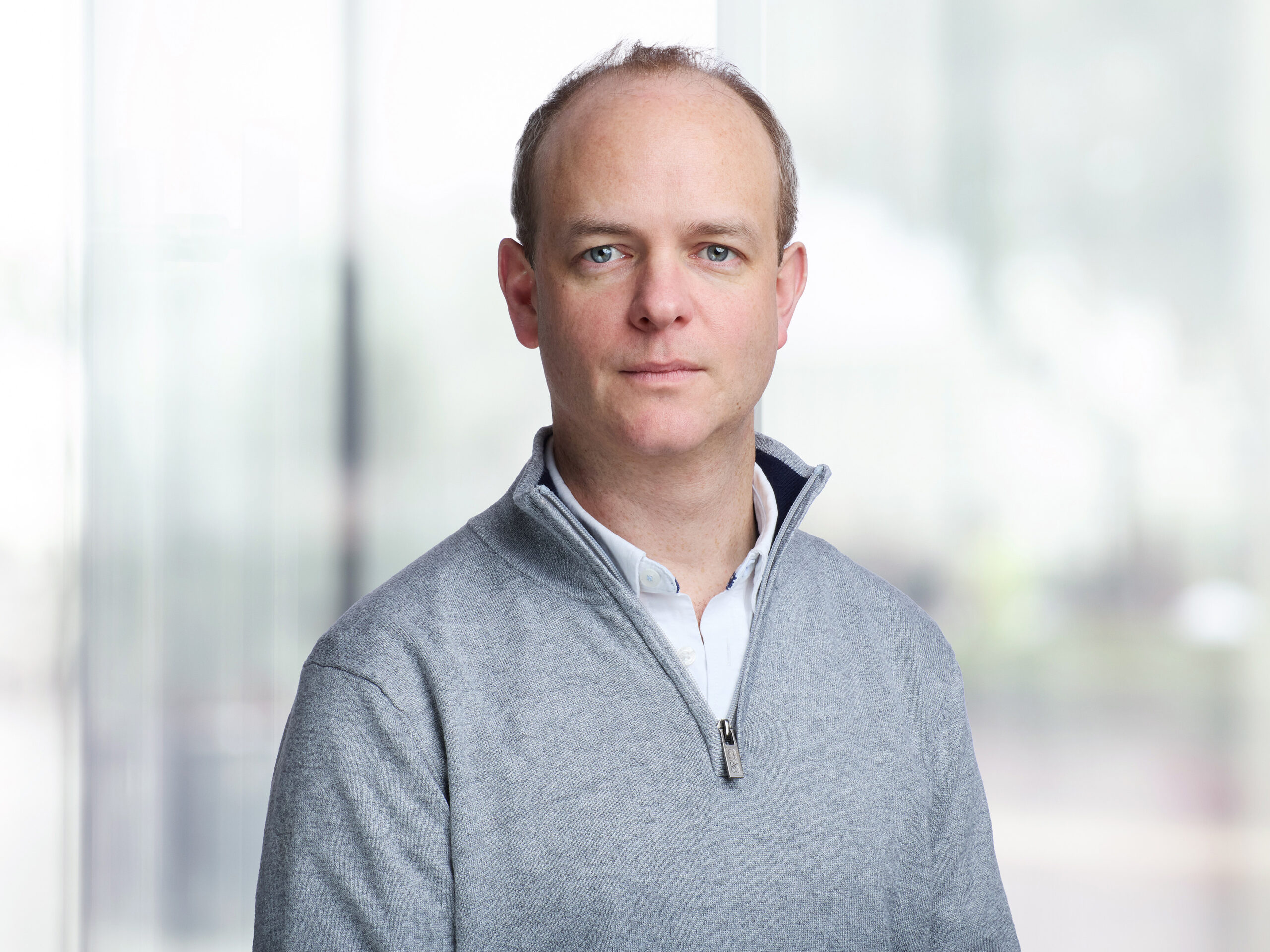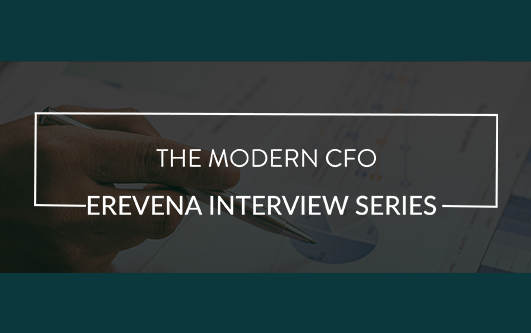Andras Mecser joined Leapwork as its operational CFO in October 2022. He talks to Erevena’s Harry Tolfree about the role of the CFO in taking a company to (and beyond) an IPO and why challenging equity markets have led to a strong debt financing market.
What’s your background in finance leadership?
It wasn’t planned. I started out in management consulting with McKinsey after leaving university with no real idea of what I wanted to do. It turned out to be one of the best schools for learning about problem solving, communication and project management, as well as how to work and interact with different personality types. I eventually left because I wanted more ownership over what I was doing. I felt that I’d see more action in a start-up or scale-up business and joined Ebury when it was just 100 people with c. £6 million of revenue. With responsibility for corporate development, I was pretty much a Jack-of-all-trades, working alongside the founders, building functions, including treasury and regulatory licensing. I also built the model ensuring compliance in different countries, worked on product development and became involved in the fundraising process, such as preparing the equity model and all due diligence materials.
How did your work on fundraising lead to you becoming CFO?
In 2015, Ebury closed a fundraising round, for which I worked on the underlying economics and most of the other elements except the actual negotiations of the terms. One of the conditions was that the company hired a CFO, which they did. However, the initial hire didn’t work out, so I stepped up to the role. I was already looking after some of the capital markets activity, working on long-range planning and engaged in the commission structure governing sales force behaviour. Essentially, I was doing all the value-add activity of a CFO, except the traditional finance processes, like accounting. So, as CFO, I continued working on things like unit economics, capital markets and complex modelling exercises, while learning more about the hard traditional pieces. That was my grounding in the role of a CFO.
You then moved on to your second CFO role – can you tell us about this?
WorldRemit was a bigger company with around £90 million in revenue and employing some 600 people. But in both cases, they were operational CFO roles and shared a common theme of the CFO being a business partner to the CEO/founders. The first thing I worked on after joining was the closing of a big funding round with the existing shareholders. I also had to manage the relationship with the FCA regarding the regulatory capital requirements and structuring so was really thrown in at the deep end. Parallel with the fundraising, we had to refine the corporate and legal structure including 20+ regulated and licensed entities across the globe plus I had to review the entire finance function, which led to 50%+ of my team being let go after it became clear that many had reached their skills limit or didn’t have the will to go on. It was certainly an interesting time!
How did your role as CFO continue to grow at WorldRemit?
In the midst of the funding round, the chief compliance officer left, so I assumed that role as well. I then took on responsibility for the legal team too. Eventually, finance operations, treasury, legal, compliance and even risk fell within my remit. You can see from this that the definition of a CFO’s role can be incredibly fluid. During my two years with the company, we completed a half billion acquisition and I continued to build up the treasury function, which began generating P&L for the business. Following the acquisition we tried to list the company, but it became clear the company wasn’t ready for that yet back then. Although I started the IPO preparation and was involved in a lot of commercial conversations, I’d said from the outset that I was not then an IPO CFO and knew it was time to move on.
You eventually joined Leapwork – what does your role entail?
My role here at Leapwork is a hybrid of CFO and COO. That means, alongside the finance function, I am also responsible for revenue ops, the deal desk and legal, as well as cloud operations. So, it’s a big and varied remit. Leapwork itself is an AI-powered test automation solution making the adoption and customization of software, as well as automation of repetitive business processes, as simple and risk-free as possible.
How important is it for a company to have a stage-appropriate CFO?
It’s when a company becomes serious about going public that it needs a stage-appropriate CFO. You might have someone who can take you through to the IPO but no further. Or someone able to take you over the finish line but then stop there. The company may then choose to bring in a CFO who can run things once it’s gone public. It really depends on the situation. I would say that private equity backers look for a CFO with direct listing experience, while growth equity investors might be more lenient in this respect.
Another factor shaping the choice of CFO might be a founder/CFO wanting to fundraise and whether that’s going to be public or private. A Series B company now looking towards Series C funding is likely to skip the step of appointing a finance director and go straight for a CFO. I have seen a shift in European markets where founders are increasingly looking for their CFO to be a partner to the business, not just someone running standard finance processes.
Can you expand on this relationship between CFO and founder/CEO?
Setting up the finance function is just one part of the job. The other sees you working hand-in-hand with the founder/CEO, looking at the go-to-market, asking how we measure the efficiency of our operations, how we report, how we communicate with the investors and capital markets. There’s also the product itself and we need to ask what the product and tech teams are doing and where the money is being spent. There’s a broad spectrum of areas where the CFO delivers value to the company beyond balancing the books and CEOs are willing to invest in CFOs able to do this and be a partner in commercial and operational matters.
Does the CFO have to be passionate about the company’s product?
Not necessarily. Frankly, test automation may not sound very “sexy”, but it solves real problems and creates tremendous value for the enterprises in a digital first economy. My decision to join Leapwork was based on a variety of factors, not just the product. These included the founders, their situation, the complexity of the business model, the backers, the team in general and the chemistry. I wanted to move into the SaaS market after a number of gigs in FinTech and got excited about the journey Leapwork was on. Leapwork offers quite a unique and innovative solution to enterprises with complex sales process and this interested me – it allows the company to differentiate itself by being difficult to copy.
What did Leapwork’s Series B round (at the time the largest ever in Denmark) mean for you?
It was one of the factors for me in joining Leapwork, but not the most important one. We have seen exuberance in valuation figures at the peak for companies with very questionable business models. A Series B company is not de-risked at all, but the fact that KKR and Salesforce Ventures backed the business was a validation point for my own diligence.
What do you feel about the current funding market?
Access to capital on the markets is hard. In fact, trying to raise equity without a very heavy discount is nearly mission impossible at the moment. That’s why we adopted a different approach and have just closed a $30 million debt facility, which I’m proud of. When I joined the company, Christian, CEO/co-founder and I agreed that we should extend the balance sheet to have 24+ months run-way. So I lined up three term sheets within a couple of months. Debt financing provides us optionality in terms of timing for the next fundraise. It is also increasing as a vehicle in Europe, though still lagging materially behind the US. I believe good assets can find financing and create competitive advantage, while an average business will struggle, whether that’s with debt financing or equity.
What level of runway would you be comfortable with?
At least 18 months. And with our debt facility at Leapwork, we have more than 24 months. I never want to be in an equity raise with a runway less than 12 months. Looking ahead, as markets open again and we come out of the tech recession in the US, in the UK and in Europe, there will be a pent-up demand to deploy money – although I don’t think we’ll see a material shift in the next six months. When we do, however, we won’t go back to the crazy 2021/22 equity markets and I don’t expect to see the valuation multiples of those unusually exuberant years.
Share this article:












